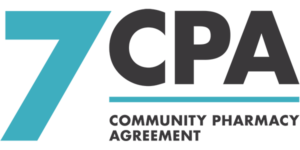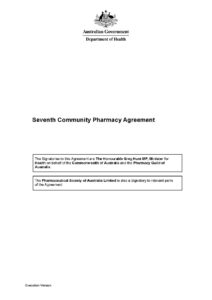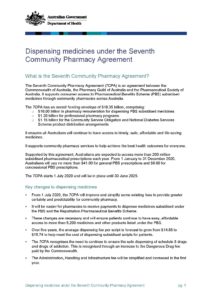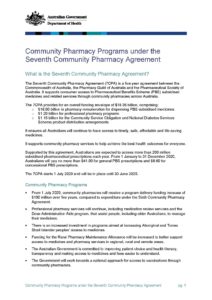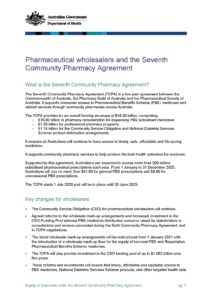With three signatories (the Commonwealth, the Pharmacy Guild of Australia and the Pharmaceutical Society of Australia) the 7CPA is structured in three parts:
- PART 1: (the Commonwealth and the Guild);
- PART 2: (the Commonwealth and the PSA);
- PART 3: (the Commonwealth, the Guild and the PSA).
PART 1
The first part of the agreement deals with matters related to the:
- Commonwealth Price;
- Community Service Obligation;
- Community Pharmacy Programs.
There are also a number of other arrangements in Part 1 including the intent to enhance the Closing the Gap – PBS Copayment Measure and to support future flexibility in the agreement through new or enhanced community pharmacy initiatives and incentives (e.g. particularly in areas such as aged care; mental health; e-prescribing). There is also a commitment to harmonisation of pharmacist vaccinations across the country.
PART 2
The second part of the agreement deals with the professional practice of pharmacists in Australia. It recognizes the PSA as the national peak body for pharmacists in Australia and the custodian of the Code of Ethics, National Competency Standards, Professional Practice Standards, and practice guidelines governing professional practice. It also articulates the role of PSA in the design, implementation and evaluation of Community Pharmacy Programs.
PART 3
The third part of the agreement deals largely with the governance arrangements and other general matters.
